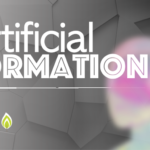![]() This content is brought to you by the Association for Christians in Student Development (ACSD), a volunteer membership organization committed to equipping and challenging faithful professionals to infuse their Christian faith into student development practice and scholarship. Thoughtful content such as this is made possible by volunteer contributions and the financial support of membership dues. Interested in becoming a member for more awesome content just like this? Join today by clicking here!
This content is brought to you by the Association for Christians in Student Development (ACSD), a volunteer membership organization committed to equipping and challenging faithful professionals to infuse their Christian faith into student development practice and scholarship. Thoughtful content such as this is made possible by volunteer contributions and the financial support of membership dues. Interested in becoming a member for more awesome content just like this? Join today by clicking here!
“What hath Athens to do with Jerusalem?”
– Tertullian
I grew up in the rolling plains of Northwest Ohio, full of corn, soybeans, and fields of wheat. The terrain is so flat you actually do begin to wonder when the Earth might end. So you can imagine my family’s amusement when my cousin, visiting from North Carolina, pointed out a modest 100-foot hill as we drove some back country roads: “I thought y’all didn’t have mountains up here!” Sheepishly, yet with laughter, we had to confess to him that the mountain he was referring to was actually our county landfill.
Mountains have been significant landmarks throughout history, and they are especially notable in the Bible. So when Jesus makes a passing reference to a “City on a Hill” during the Sermon on the Mount, it actually proves to be a pivotal landmark for our understanding of the calling of God’s Kingdom. Jesus says in Matthew 5:13-16:
“You are the salt of the earth. But if the salt loses its saltiness, how can it be made salty again? It is no longer good for anything, except to be thrown out and trampled underfoot.
You are the light of the world. A town built on a hill cannot be hidden. Neither do people light a lamp and put it under a bowl. Instead they put it on its stand, and it gives light to everyone in the house. In the same way, let your light shine before others, that they may see your good deeds and glorify your Father in heaven.”
The City on a Hill
The city on a hill metaphor has been a common phrase in American political rhetoric, from 17th-century Puritan, John Winthrop (1630), to its modern iteration from Ronald Regan (1989), to today’s continual callbacks to “Regan’s shining city on a hill” (White, 2016). However, Kaitlyn Schiess suggests that our American interpretation of Winthrop or Reagan’s city on a hill pales in the context of Jesus’s original message:
“When Jesus called his followers to be like ‘a city that is set on a hill’ (KJV) in the Sermon on the Mount of Matthew 5, he was (unsurprisingly) not talking about America. But neither was he exhorting his original audience toward pride in their own goodness or optimism about the future (he had just finished telling them how blessed the poor and meek and persecuted are).” (Schiess, 2023)
As Jesus shares this description of the Kingdom of God in Matthew 5, he is evoking another account of the ways of the Kingdom from Isaiah 2:1-5 (Collins & Jones, 2024). A city on a hill in which God’s people travel up the river to receive God’s good instruction by spending time in God’s light; in turn, God’s people are to shine this light by living God’s good instruction within the world. We find in Isaiah 2:5 that this vision leads to justice (“He will judge between the nations and will settle disputes for many peoples”), transformation (“They will beat their swords into plowshares and their spears into pruning hooks”), and peace (“Nation will not take up sword against nation, nor will they train for war anymore.”).
Pursuit of a Posture
We find ourselves in a unique place as Christ-enlivened educators as we face an anxiety-inducing election season. What are we to do? After all, we are reminded at every turn that this election is the most important of our lifetime – it is existential! If we are unable to make sense of these times, how in the world can we help our students do so? How can we pursue justice, transformation, and peace? We can have confidence in the completed work of Christ and the coming redemption of all things.
Let us be encouraged:
“But the Christian story says that we are not awaiting the impending turning point of history from goodness to chaos. The Christian story says that the defining point of history has already happened: the resurrection of Jesus Christ. In light of that victory over the powers and principalities, and in hopeful anticipation of his return to bring that victory to consummation, we have opportunities to effect change in our fallen world.” (Schiess, 2024)
Regardless of our political persuasion, we have the opportunity to serve and care for our students, helping them become responsible citizens and live redeeming lives of service when we are rooted in the death, resurrection, and person of Jesus. As Christians, our political pursuits must be less focused on the power of position and more focused on a posture towards justice, transformation, and peace through faithful engagement within our communities.
How can we embrace the light of that victory and engage with hopeful anticipation in our communities? We can be a faithful presence —salt and light— sharing God’s justice, love, and mercy with the world.
- Start hopeful. The Christian story assures us that our ultimate hope lies in God’s glory and the “already-but-not-yet” Kingdom (Romans 8:24-25). Christians are called to be agents of hope in the ways we seek to love God and love others and the ways we seek to foster peace.
- Start small. Redemptive engagement can come in a variety of ways. Amy Sherman (2022) offers a multifaceted paradigm that might help us emphasize various areas for working towards the flourishing of our communities: The Good, The True, The Beautiful, The Just, The Prosperous, and The Sustainable. Leveraging the wisdom of others can help guide the work of service, community, and civic engagement.
- Start local. It is easy to be caught up in the latest headlines of our national elections – and don’t get me wrong, national elections are an important form of civic engagement. However, our investment and involvement with place-based engagement at local levels of government, non-profit, and service work can be exponentially transformational for our institutions and surrounding communities (Sobel, 2004).
May we steward our responsibility to help our students learn – and learn ourselves – to act justly, love mercy, and walk humbly with God (Micah 6:8); transform tools meant for harm to cultivate deep relationship; and foster peace, wholeness, and shalom within our communities. Then, not by our own might or exceptionalism, but by the grace of God, we can embody a shining, salty city on a hill.
References
- Collins, J. & Jones, M. (Hosts). (19 February 2024). The salt of the land and the light of the world (No. 8). [Audio podcast episode]. In BibleProject Podcast. BibleProject. https://bibleproject.com/podcast/salt-land-and-light-world/.
- Regan, R. (1989). Farewell address to the nation. Ronald Regan Presidential Library and Museum. https://www.reaganlibrary.gov/archives/speech/farewell-address-nation.
- Schiess, K. (2023). Politicians, you keep saying ‘City on a Hill’: But it doesn’t mean what you think it means. Christianity Today. https://www.christianitytoday.com/ct/2023/august-web-only/gop-president-debate-republican-candidate-christian-nation.html.
- Schiess, K. (2024). ‘The most important election of our lifetime’: Extreme political rhetoric stokes fear and encourages apathy. Christian can offer a productive counterpart. Christianity Today. https://www.christianitytoday.com/ct/2024/july-web-only/schiess-most-important-election-of-our-lifetime.html.
- Sherman, A. (2022). Agents of flourishing: Pursuing shalom in every corner of society. InterVarsity Press.
- Sobel, D. (2004). Place-based education: Connecting classrooms and community. Barrington, MA: Orion Society.
- White, D. (2016). Read Hillary Clinton’s speech touting ‘American exceptionalism.’ Time Magazine. https://time.com/4474619/read-hillary-clinton-american-legion-speech/.
- Winthrop, J. (1630). A model of Christian charity. In S.M. Smith, E. Deitz Tucker, & D. Tucker (Eds.), Teaching American history. https://teachingamericanhistory.org/document/a-model-of-christian-charity-2/.







